Lok Biradari Hospital, Hemalkasa has been serving local tribals since 1973. Right now, it's catering more than 40 thousand patients per year from 3 states (Maharashtra, Chhattisgarh, Telangana) with specialized care.
But, it was observed that many times, patients could not reach to the hospital on time due to various reasons like poor condition of roads, non-availability of local transport system, heavy rains etc. Also, many villages are very distant to the hospital and completely cut off during monsoon. Some of these are up to 25 km. It's quite inconvenient for patients to travel so much for problems like cold, cough, fever, diarrhoea etc. We thought, if these villages have a medical center nearby, that will not only save money and time of patients but also they'll get treatment at door step only.
The program was initialized in 2015 by Dr. Digant Amte and Dr. Anagha Amte. It was named as "Community Health Program". Till date, 6 health centers are set up which cover 26 villages. They serve up to 6500 population from approximately 1223 households. On average, one health center serves about 1000 patients per year i.e. about 200 households. Please click here to see health center locations and click here to see distance details.
Each center has a "Community Health Worker" (CHW) who is selected unanimously by villagers. These CHWs are literate and have completed education up to 12th standard.
| CHW Name | Center Location | Establishment Year | Villages Covered |
| Dansu Pungati | Ghotpadi | 2015 |
Ghotpadi Darbha Bolange Bhatpar |
| Pali Mahaka | Pengunda | 2015 |
Pengunda Mahkapadi Parainar Kucher Gongwada |
| Sunita Majji | Midadapalli | 2015 |
Midadapalli Nelgunda Kawande Morometta |
| Rajesh Talande | Jinjgaon | 2016 |
Jinjgaon Rela Marampalli Gornur |
| Birju Durva | Gopnar | 2016 |
Gopnar Lashkar Hodri Aldandi Morodpar |
| Sudhakar Durva | Mirgudwancha | 2017 |
Mirgudwancha Poyarkothi Dobhur Gundurwaahi |
CHW's home is set up as health center right now. But, we are in a process to set up a separate health center at Pengunda. We have set up a health center at Gopnar in February 2020.
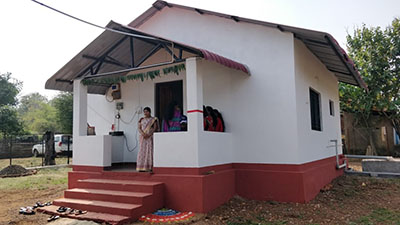
Responsibility of each CHW includes disease identification and treatment of patients who visit the center. If the case looks severe, CHW refers it to Lok Biradari Hospital. We encourage CHWs to visit each and every household which comes under the center. It's observed that patient count has increased significantly after household visits. CHWs treat the patients at doorstep. During these visits, they emphasize on prevention of diseases and promotion of good health practices.
CHWs also arrange regular "Community Health Awareness" meetings in their respective areas with support of project coordinators. In these meetings, everyone from the village is invited. Topics like Malaria & its prevention, water borne diseases and their prevention etc. are discussed to increase health awareness into villagers. As part of this program, we have distributed water purifiers in Palli and Jinjgaon villages.
One good example for this effort is, "Hand Wash Station", which is set up at each center. In near future, we are going to set it up at villagers' homes too. We have also created a "Snake Identification Kit". It's a set of pictures which differentiates between poisonous and non-poisonous snakes. This prevents the villagers from getting panic on each snake bite. Also, if the poisonous snake is identified correctly, accurate treatment can be given to the patient and a valuable life would be saved.
The locals don't quite follow the regular calendar. So, it gets tough sometimes while scheduling their medical treatment. This problem is particularly seen with pregnant women. As a solution, we have developed "Local Events Calendar" which is designed according to local events/festivals. Please click here to view it.
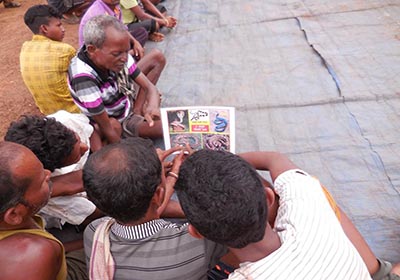
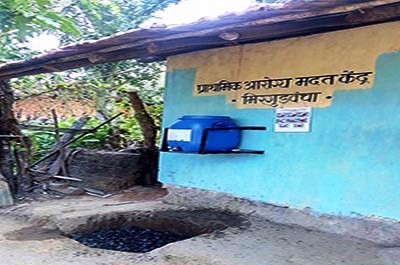
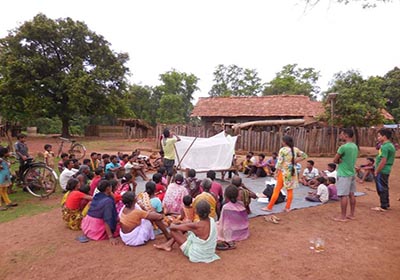
Major health problems seen in this region are Malaria, Sickle Cell Anaemia, Scabies etc. Water borne diseases like Typhoid, Cholera are also very common. Number of patients with Non-Communicable Diseases (NCD) like hypertension, oral cancer is also increasing significantly. Many patients suffer due to under nutrition (nutritional anaemia) and poor hygiene.
Another major category of patients is "Animal Bites". These include snake, scorpion, wild pigs and even bears.
High illiteracy rate is a major problem in this region. Other social issues include alcoholism, tobacco chewing and smoking, kharra-gutkha consumption etc. People are very superstitious and even today, prefer to go to a religious practitioner (pujaari) instead of a doctor for any health issues.
A tablet PC has been provided to each CHW which has an app namely "Arogyadoot", developed by Samanvay Foundation, Bengaluru. CHW enters patient's personal information, symptoms, medical examination details etc. Once everything entered, it displays recommended medicines and their doses. It also stores patient's data, which at month end, is synchronized with central database at the hospital for analysis.
If patient doesn't show any improvement even after medication, CHW fills up all details in a referral slip and requests patient to go to Lok Biradari Hospital. These slips are so detail oriented that even local health department officers have appreciated. If patient condition is critical, CHW calls the hospital for an ambulance.
CHWs also maintain documents like birth registration, death registration, birth delivery forms, patient record register etc. They maintain a daily activity diary too. All details are entered in a monthly report, which shows summary in number format.
Lok Biradari Hospital has a sanitary napkin production unit. Right now, lady CHWs distribute these. Each pack has 10 napkins and the cost is just 15 rupees. These cost-effective biodegradable sanitary napkins help the ladies to maintain a better menstrual hygiene.
All CHWs meet at the hospital on last day of every month. They report work details and also receive training for couple of days. Project coordinator conducts training on any new health topics.
The hospital also conducts regular "exposure" visits for CHWs. In December 2017, we visited Jan Swasthya Sahyog [JSS], a Bilaspur based organization, where CHWs have seen the community health project of JSS.
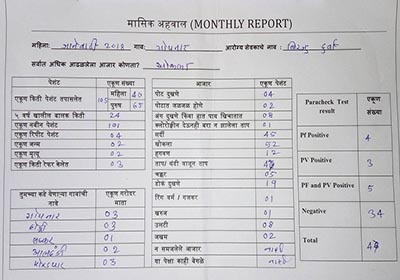


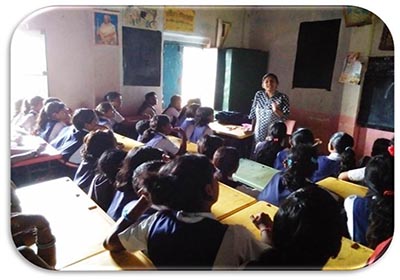
The Community Health Unit of the hospital has some more upcoming plans as listed below.